Michael Vick is a former NFL quarterback and current college football coach. He played college football at Virginia Tech, winning the Archie Griffin Award, before being drafted first overall by the Atlanta Falcons in 2001. During his six seasons with the Falcons, Vick earned three Pro Bowl selections and led the team to two playoff appearances, one division title, and an NFC Championship Game appearance. He was known for his exceptional rushing ability and at the time of his retirement, he was the all-time leader in quarterback rushing yards.
June 26, 1980: Michael Vick's Birth
On June 26, 1980, Michael Dwayne Vick was born. He is an American college football coach and former professional football player.
1980: Herschel Walker's Heisman Nomination
In 1980, Herschel Walker set the highest Heisman Trophy nomination result for a freshman, which Michael Vick would match in 1999.
1986: Hokies Not Won Since
Before 2000, the last time the Hokies won against Syracuse at the Carrier Dome was in 1986.
1996: Move to Warwick High School
In 1996, Ferguson High School was closed, leading Michael Vick, as a sophomore, and coach Tommy Reamon to move to Warwick High School.
1999: Awards and Heisman Trophy Nomination
In 1999, Michael Vick led the NCAA in passing efficiency, won an ESPY Award and the Archie Griffin Award, and was named Big East Offensive Player of the Year. He also finished third in the Heisman Trophy voting.
1999: Collegiate Debut and Sugar Bowl Appearance
In 1999, Michael Vick played his first collegiate game for Virginia Tech and scored three rushing touchdowns against James Madison. He also led the Hokies to an undefeated season and an appearance in the Nokia Sugar Bowl against Florida State.
2000: MLB Draft Selection by Colorado Rockies
In 2000, Michael Vick was selected in the 30th round of the Major League Baseball Draft by the Colorado Rockies, despite not playing baseball since the eighth grade.
2000: Heisman Trophy Voting
In the 2000 season, Michael Vick finished sixth in Heisman Trophy voting.
April 9, 2001: Sports Kept Me Off the Streets
In an interview published on April 9, 2001 in Sporting News magazine, Michael Vick said that sports kept him off the streets and away from the bad stuff happening around him.
September 9, 2001: NFL Debut Against 49ers
On September 9, 2001, Michael Vick made his NFL debut against the San Francisco 49ers, seeing limited action.
2001: Vick Signs Marketing Agreement
In 2001, Michael Vick signed a five-year marketing agreement with Joel Enterprises. Joel's cut was 25% of all deals, excluding Vick's NFL contract, according to the agreement.
2001: Coping with Violence and Stress
In a 2001 interview with the Newport News Daily Press, Michael Vick recounted that when he was 10 or 11, he would go fishing to escape the violence and stress of daily life in the projects.
2002: Numerous Single-Game Career Highs
In 2002, Michael Vick made 15 starts and set numerous single-game career highs, including in passes completed, pass attempts, and passing yards. He also set a then-NFL record for most rushing yards by a quarterback in a single game with 173 against the Minnesota Vikings.
January 4, 2003: Upset Victory Over Green Bay Packers
On January 4, 2003, Michael Vick led the Atlanta Falcons to an upset victory over the Green Bay Packers in the NFC Wild Card Round.
2003: Fractured Fibula and Return to Play
During a preseason game in 2003, Michael Vick suffered a fractured right fibula, causing him to miss the first 11 games of the regular season. He made his debut in week 13 and had a strong performance against the Carolina Panthers on December 7, amassing the third-highest rushing total by a quarterback in NFL history.
2003: Michael Smith Advises Vick
From 2003 to 2005, Certified Financial Planner Michael Smith advised Vick.
October 31, 2004: First Quarterback to Throw for 250+ Yards and Rush for 100+ Yards
On October 31, 2004, Michael Vick became the first quarterback to throw for more than 250 yards and rush for over 100 yards in the same game, during a game against the Denver Broncos.
2004: Falcons seek to recover signing bonus
In 2004, an arbitrator ruled that Michael Vick had to reimburse the Atlanta Falcons for $19.97 million of his signing bonus. The arbitrator agreed with the Falcons' argument that Vick knew he was engaging in illegal activity when he signed his new contract in 2004, and that he had used the bonus money to pay for the dog fighting operation.
2004: Jenkins owned Atlantic Wine since 2004
Jenkins, a retired surgeon who owned Atlantic Wine since 2004, brought Vick in as an investor.
2005: Michael Smith Resigned After Bad Investments
From 2003 to 2005, Certified Financial Planner Michael Smith advised Vick, but resigned after Vick took bad advice from friends, made ill-conceived investments, overspent, and otherwise undermined the wealth-building plan that Smith had created.
2005: Joel Enterprises Sues Vick
In 2005, Joel Enterprises sued Vick in Richmond Circuit Court for $45 million in compensatory and punitive damages for breach of contract.
2005: Third Pro Bowl Selection
Michael Vick made his third Pro Bowl after the 2005 season, during which he passed for 2,412 yards and 16 touchdowns while rushing for 597 rushing yards and six touchdowns. However, the Falcons finished with an 8–8 record and missed the playoffs.
May 2006: Vick Takes out Loan to set up Wine Shop and Restaurant
In May 2006, Vick took out loan to set up Wine Shop and Restaurant.
June 2006: The Vick Foundation Established
In June 2006, Michael Vick, along with his brother Marcus and mother Brenda, established The Vick Foundation, a nonprofit organization to support at-risk youth with after-school programs in the Metro Atlanta and Hampton Roads areas. The announcement of the new organization came just before the start of the foundation's first fundraiser, the Michael Vick Golf Classic.
December 2006: Trial Could Proceed
After the Virginia Supreme Court denied a Vick motion and ruled that the civil trial could proceed in December 2006, the parties agreed to submit the dispute to binding arbitration for resolution instead of a formal civil court trial.
December 2006: Vick scores first touchdown since December 2006
During week 13 against the Atlanta Falcons in December 2006, Michael Vick threw and ran for a touchdown, marking his first scores since December 2006.
2006: Vick's Income Estimated at $25.4 Million
At the end of 2006, Sports Illustrated magazine estimated Michael Vick's annual income between his NFL salary and endorsements at $25.4 million.
2006: First Quarterback to Rush for Over 1,000 Yards in a Season
In 2006, Michael Vick became the first quarterback to ever rush for over 1,000 yards in a single season. Despite his record-setting season, the Falcons finished with a 7–9 record and again missed the playoffs.
2006: $45 Million Lawsuit Pending
In 2006, Michael Vick faced a $45 million lawsuit in a dispute with his original sports agents. Several lucrative endorsement deals soured.
2006: Middle finger gesture incident
In 2006, Michael Vick made a middle finger gesture to Atlanta football fans, negatively impacting his corporate status.
April 16, 2007: Vick Donates to Virginia Tech Massacre Victims
After the Virginia Tech massacre on April 16, 2007, Michael Vick and the United Way donated $10,000 to assist affected families. The Vick Foundation also collected donations from communities in Atlanta and Virginia to support funeral expenses, transportation for family members, and other support services.
April 25, 2007: Search warrant leads to dog fighting evidence
On April 25, 2007, a search warrant executed as part of a drug investigation of Vick's cousin, Davon Boddie, led to the discovery of evidence of unlawful dog fighting activities at a property owned by Vick in Surry County, Virginia.
July 2007: Financial Claims Escalate Against Vick
After the dog fighting indictments were announced in July 2007, financial claims against Michael Vick escalated, straining his financial affairs and leading to an inability to meet scheduled payments.
July 2007: Vick Indicted on Federal Felony Charges
In July 2007, Michael Vick and three other men were indicted on federal felony charges for operating an unlawful interstate dog fighting venture known as "Bad Newz Kennels". Vick was accused of financing the operation, participating in dog fights and executions, and handling gambling activities. Federal prosecutors intended to proceed under the Racketeer Influenced and Corrupt Organizations Act (RICO).
August 2007: NFL suspends Vick indefinitely
In August 2007, following Michael Vick's guilty plea to federal charges in the Bad Newz Kennels dog fighting investigation, the NFL suspended him indefinitely without pay for violating its player conduct policy. Commissioner Roger Goodell cited Vick's admission to illegal and cruel conduct, emphasizing his role in funding the gambling aspect of the dog fighting operation. While technically a first-time offender, Goodell handed down a harsher suspension. Vick was barred from training camp, and the terms of his bail effectively ended any chance of him playing in 2007.
September 13, 2007: Vick Tests Positive for Marijuana
On September 13, 2007, while free on bail, Michael Vick tested positive for marijuana in a random drug test, violating the conditions of his release. As a result, he was confined to his home in Hampton, Virginia, between 10 p.m. and 6 a.m. with electronic monitoring.
September 25, 2007: Vick Indicted on Virginia State Charges
On September 25, 2007, following indictments by the Surry County grand jury, separate Virginia charges were brought against Michael Vick and his co-defendants in the dog-fighting case. Vick was charged with two class-6 felonies.
September 26, 2007: 1st Source Bank Claims Damages in Lawsuit
On September 26, 2007, 1st Source Bank claimed damages of at least $2 million in a federal lawsuit, alleging Michael Vick and Divine Seven LLC refused to pay for at least 130 vehicles acquired to be used as rental cars.
October 2007: Wachovia Bank Files Federal Suit Against Vick
In October 2007, Wachovia Bank filed a federal suit seeking about $940,000 from Michael Vick and Gerald Frank Jenkins, claiming they defaulted on a May 2006 loan of $1.3 million to set up a wine shop and restaurant.
November 2007: Vick Attempts to Sell Home
In November 2007, Michael Vick attempted to sell one of his homes.
2007: Analysts discuss Vick's future
In 2007, ESPN's John Clayton speculated on the limited options for Michael Vick to resurrect his football career due to fan and media backlash, the CFL's ban on NFL-suspended players, and the difficulty of obtaining a Canadian work visa. Clayton suggested that the Arena Football League could be a viable option for Vick.
2007: Dog Fighting Scandal and Prison Sentence
In 2007, Michael Vick's NFL career was halted after he pleaded guilty for his involvement in a dog fighting ring and subsequently spent 21 months in federal prison. This arrest and conviction garnered him notoriety with the general public.
2007: Neighborhood Condition
In 2007, a newspaper article in the Richmond Times-Dispatch noted that "not much [had] changed" in the neighborhood where Vick grew up nearly a decade after he left, citing drug dealing, drive-by shootings, and other killings.
2007: Animal cruelty case surfaces
In 2007, the animal cruelty case involving Michael Vick surfaced, further damaging his corporate status.
2007: Wong Hired as Business Manager
In the fall of 2007, Michael Vick hired Mary Wong as a business manager. Wong helped cash in some of Vick's investments, later wrongfully removing at least another $900,000 from his various accounts.
April 2008: Vick meets Talbot
In April 2008, Michael Vick met Talbot, who claimed to be a financial management expert, through his brother Marcus. Vick agreed to pay Talbot $15,000 per month and gave him an $85,000 Mercedes-Benz.
May 7, 2008: Court Grants Motion Against Vick
On May 7, 2008, the court granted a motion for summary judgment against Michael Vick for default and breach of a promissory note and ordered him to pay the bank more than $2.5 million.
May 2008: Court Grants Summary Judgment in Favor of Wachovia
In May 2008, the U.S. District Court in Atlanta granted a summary judgment in favor of Wachovia. The judgment of $1.11 million included the initial principal balance, interest accrued, fees, overdrawn accounts, and legal fees.
June 2008: Marcus Vick Lists Michael Vick's Home as Residence
In June 2008, Michael Vick's brother, Marcus, was arrested and jailed in Norfolk after a police chase. He listed his residence as a $1.39 million home owned by Michael Vick.
July 7, 2008: Vick Files for Chapter 11 Bankruptcy Protection
On July 7, 2008, Michael Vick sought Chapter 11 bankruptcy protection in U.S. Bankruptcy Court in Newport News, listing assets of less than $50 million and debts of between $10 million and $50 million.
August 2008: Trustee Appointed to Manage Vick's Bankruptcy
In August 2008, trustee W. Clarkson McDow Jr. was appointed to manage Michael Vick's bankruptcy. McDow noted Vick had limited ability to arrange his finances and relied on others for financial decisions.
October 14, 2008: Vick Seeks to Resolve State Charges Early
On October 14, 2008, Michael Vick's attorney, Lawrence Woodward, filed a motion to enter a plea via two-way electronic video with the Surry County Courts. Vick planned to plead guilty to state charges to get early release from federal prison, but the request for a trial without Vick physically present was denied.
November 12, 2008: Vick files bankruptcy reorganization plan
On November 12, 2008, Vick's attorneys filed a first plan of reorganization through bankruptcy. The plan involved selling three of Vick's six homes to cover expenses, including significant monthly support payments to his mother, fiancée, daughters, and former girlfriend.
November 2008: Vick Appears in Surry County Court
In November 2008, Michael Vick was transported to Virginia to face state charges. On November 25, he appeared before the Surry County Circuit Court and submitted a guilty plea to a single Virginia felony charge for dog fighting, receiving a suspended 3-year prison sentence and a $2,500 fine.
February 2009: Falcons consider trading Vick
In February 2009, the Atlanta Falcons revealed that they were considering trading Michael Vick to another NFL team. The Falcons released Vick in early June, making him an unrestricted free agent.
March 25, 2009: Labor Department Files Lawsuit Against Vick
On March 25, 2009, the United States Department of Labor filed a lawsuit alleging Michael Vick and others violated federal employee benefits laws by withdrawing $1.35 million from a retirement plan sponsored by MV7.
April 2, 2009: Vick appears at bankruptcy hearing
On April 2, 2009, Michael Vick appeared in person before Judge Santoro at a hearing in Newport News. He testified about his remorse and intention to improve his life after prison. Judge Santoro rejected the initial bankruptcy reorganization plan due to its reliance on Vick's uncertain NFL return.
April 3, 2009: Vick-Falcons Settlement Agreement
On April 3, 2009, the bankruptcy court was advised of the Vick-Falcons settlement agreement to reduce the amount to between $6.5 and $7.5 million.
July 20, 2009: Vick Released from Federal Prison
Michael Vick, Federal Bureau of Prisons (BOP) ID# 33765-183, was released from federal prison on July 20, 2009.
August 13, 2009: Vick signs with Philadelphia Eagles
On August 13, 2009, Michael Vick signed a one-year contract with the Philadelphia Eagles for $1.6 million, with no guaranteed money. The contract included a team option for the 2010 season worth $5 million. He was allowed to participate in team practices, meetings, and the last two preseason games and was eligible to play in the third week of the regular season.
October 2009: Nike provides Vick with complimentary gear
Starting in October 2009, Nike began providing Michael Vick with complimentary athletic gear.
2009: Signing with the Philadelphia Eagles
In 2009, after serving his sentence, Michael Vick signed with the Philadelphia Eagles, marking a new chapter in his NFL career.
2009: Steelers consider signing Vick in 2009
In 2009, the Steelers had considered signing Michael Vick—both Vick and Steelers head coach Mike Tomlin are from the same part of Virginia and know each other well personally—but decided against it due to potential backlash since Vick at the time hadn't proven himself following his release from prison.
January 9, 2010: Vick throws career-long touchdown pass in playoff game
On January 9, 2010, in the NFC Wild Card Round game against the Dallas Cowboys, Michael Vick threw the longest touchdown pass of his career to rookie Jeremy Maclin for 76-yards.
2010: Vick's Estimated Debt Reaches $18.97 Million
By 2010, Michael Vick was an estimated $18.97 million in debt, after a plan for Vick to have a net wealth of $100 million by 2010 failed.
2010: Team option for 2010
In 2010 Michael Vick had a team option with the Philadelphia Eagles worth $5 million, included in his one-year contract that was signed on August 13, 2009.
2010: Eagles exercise Vick's option for 2010
In 2010, Donovan McNabb was traded to the Washington Redskins and Kevin Kolb was named the starter. In March, The Eagles exercised Michael Vick's option for 2010 and Vick received a $1.5 million roster bonus.
2010: Vick's payments in 2010
In 2010, Vick paid his agent Joel Segal $32,500 and paid bankruptcy lawyers $748,750.
2010: Comeback Player of the Year
In 2010, as a member of the Philadelphia Eagles, Michael Vick had his greatest statistical season, leading the team to a division title and earning him Comeback Player of the Year and a fourth Pro Bowl selection.
2010: Vick's performance against Redskins
In 2010, during a Week 10 Monday Night Football game against the Washington Redskins on November 14, Michael Vick passed for 333 yards and four touchdowns, while rushing for 80 yards and two touchdowns. Later in the season against the New York Giants, Vick led a fourth-quarter comeback to erase a 21-point deficit. Philadelphia finished with a 10–6 record in 2010 and made the playoffs.
January 27, 2011: Vick signs with Unequal Technologies
On January 27, 2011, Michael Vick signed a two-year endorsement deal with Unequal Technologies, a company that produces football pads, marking his first endorsement after being released from prison.
March 4, 2011: Vick wins Bert Bell Award
On March 4, 2011, Michael Vick won the Bert Bell Award after making his fourth Pro Bowl, Vick finished second in the NFL Offensive Player of the Year and NFL MVP.
July 1, 2011: Nike re-signs Vick as an athlete
On July 1, 2011, Nike officially re-signed Michael Vick as an athlete. They had been providing him with complimentary gear since October 2009, and this re-signing marked the first time a sponsor had brought back an athlete after dropping him.
2011: Vick Lobbies for Animal Fighting Spectator Prohibition Act
In 2011, Michael Vick lobbied for H.R. 2492, the Animal Fighting Spectator Prohibition Act, which aimed to establish federal misdemeanor penalties for spectators of illegal animal fighting and felony charges for adults bringing children to fights.
2011: Vick's payments in 2011
In 2011, Vick paid his agent Joel Segal $104,000 and paid bankruptcy lawyers $1 million.
2011: Vick starts 13 games
In the 2011 season, Michael Vick appeared in and started 13 games, finishing with 3,303 passing yards, 18 passing touchdowns, and 14 interceptions to go along with 76 carries for 589 rushing yards and one rushing touchdown. Philadelphia finished the 2011 season with an 8–8 record.
January 1, 2012: Vick throws for 335 yards against Washington
On January 1, 2012, in the final game of the season, Michael Vick completed 24 of 39 passes for 335 yards and three touchdowns in a 34–10 victory at home against Washington.
2012: Vick launches V7 clothing line
In 2012, Michael Vick launched a sports clothing line called V7, to be sold exclusively at Modell's. Part of the proceeds was intended to go to the Boys and Girls Club of Philadelphia.
2012: Vick leads Eagles with interceptions
In 2012, despite throwing four interceptions, Michael Vick led the Eagles to a 17–16 victory in week one against the Cleveland Browns. The Eagles won the following game against the Baltimore Ravens, but lost 27–6 in the third week of the season to the Arizona Cardinals.
2012: Vick's agent payments begin to increase
Starting in 2012, Vick would pay his agent Joel Segal $160,000 each year.
February 11, 2013: Eagles and Vick agree to restructured contract
On February 11, 2013, the Eagles and Michael Vick agreed on a one-year restructured contract worth up to $10 million. Vick reclaimed his starting job from Nick Foles.
2013: Colin Kaepernick breaks record
In 2013, Colin Kaepernick broke the NFL record for most rushing yards by a quarterback in a single game, previously held by Michael Vick, with 181 yards.
March 21, 2014: Vick signs with New York Jets
On March 21, 2014, Michael Vick signed a one-year $5 million contract with the New York Jets, the same day the Jets released Mark Sanchez.
August 25, 2015: Vick signs with Pittsburgh Steelers
On August 25, 2015, Michael Vick signed a one-year contract with the Pittsburgh Steelers worth $970,000.
2015: Vick's high agent payments end
2015 was the last year that Vick would pay his agent Joel Segal $160,000.
2016: Vick announces to play one more season
In 2016, Michael Vick announced he would play one more season in the NFL.
2016: Free Agency
In 2016, Michael Vick spent the season as a free agent before officially retiring from professional football the following year.
February 3, 2017: Vick officially announces his retirement
On February 3, 2017, Michael Vick officially announced his retirement from professional football.
June 12, 2017: Vick retires as an Atlanta Falcon
On June 12, 2017, Michael Vick retired as an Atlanta Falcon.
June 28, 2017: Vick participates in American Flag Football League
On June 28, 2017, Michael Vick began participating in the newly formed American Flag Football League, serving as captain of Team Vick.
2017: Vick joins Chiefs as coaching intern
During their 2017 training camp, Michael Vick joined his former coach Andy Reid as a coaching intern with the Kansas City Chiefs. He also became an NFL analyst on Fox NFL Kickoff on FS1 after the Chiefs concluded their 2017 training camp.
2017: Induction into Virginia Tech Sports Hall of Fame
In 2017, Michael Vick's football accomplishments in two seasons led to his induction into the Virginia Tech Sports Hall of Fame.
2017: Official Retirement
In 2017, after spending the 2016 season as a free agent, Michael Vick officially retired from professional football. After retiring as a player, Vick pursued a coaching career.
April 25, 2018: Vick hired as offensive coordinator for Atlanta Legends
On April 25, 2018, Michael Vick was hired as offensive coordinator for the Atlanta Legends of the Alliance of American Football. Shortly before the season began, Vick would no longer serve as offensive coordinator, but would still remain with the team as a consultant.
December 20, 2024: Vick named head football coach at Norfolk State University
On December 20, 2024, Michael Vick was named the 19th head football coach at Norfolk State University.
2024: Head Football Coach at Norfolk State
Near the end of the 2024 season, Michael Vick was named the head football coach at Norfolk State, marking his move into a head coaching position.
2025: Induction into College Football Hall of Fame
Michael Vick was inducted into the College Football Hall of Fame in 2025.
Mentioned in this timeline
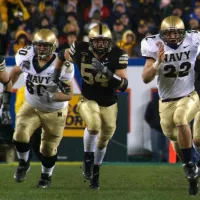
College football is a popular amateur sport in the United...
Sports Illustrated SI is an American sports magazine launched in...

San Francisco is a major commercial financial and cultural hub...
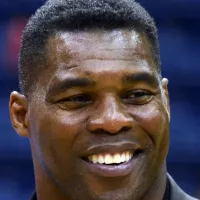
Herschel Walker is an American diplomat and former professional football...

News encompasses information about current events disseminated through various media...
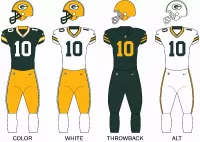
The Green Bay Packers are an NFL team based in...
Trending
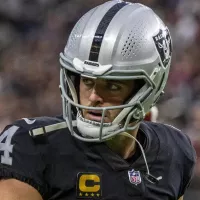
53 minutes ago Derek Carr Eyes NFL Return: Potential Teams and Future Free Agency Speculation.

54 minutes ago Humbert Faces O'Connell in Rotterdam: Predictions, Odds, and Match Preview for Tennis Tournament.

54 minutes ago January Inflation Report: Trends, Treasury Yields, and Consumer Price Index Preview.
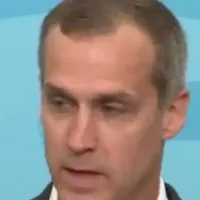
54 minutes ago Kristi Noem's pilot fired, rehired after blanket incident linked to Corey Lewandowski.
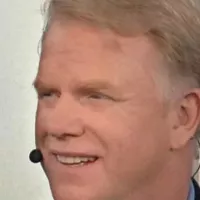
2 hours ago Olympians Respond to Trump's Criticism; JD Vance Comments on Politics at the Olympics

3 hours ago Kevin Nash still holds a grudge against CM Punk for leaving WWE.
Popular

Kid Rock born Robert James Ritchie is an American musician...
The Winter Olympic Games a major international multi-sport event held...

Barack Obama the th U S President - was the...

XXXTentacion born Jahseh Dwayne Ricardo Onfroy was a controversial yet...

Michael Joseph Jackson the King of Pop was a highly...

Michael Jordan often known as MJ is a businessman and...
